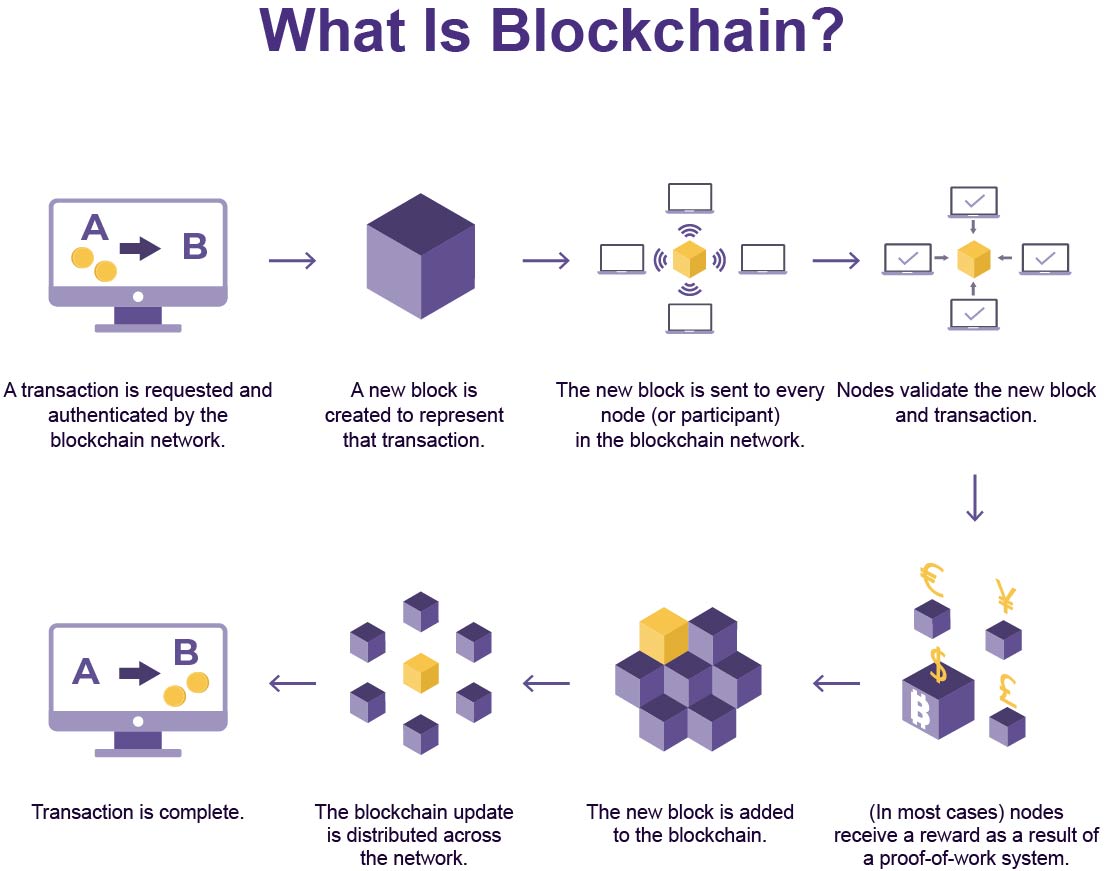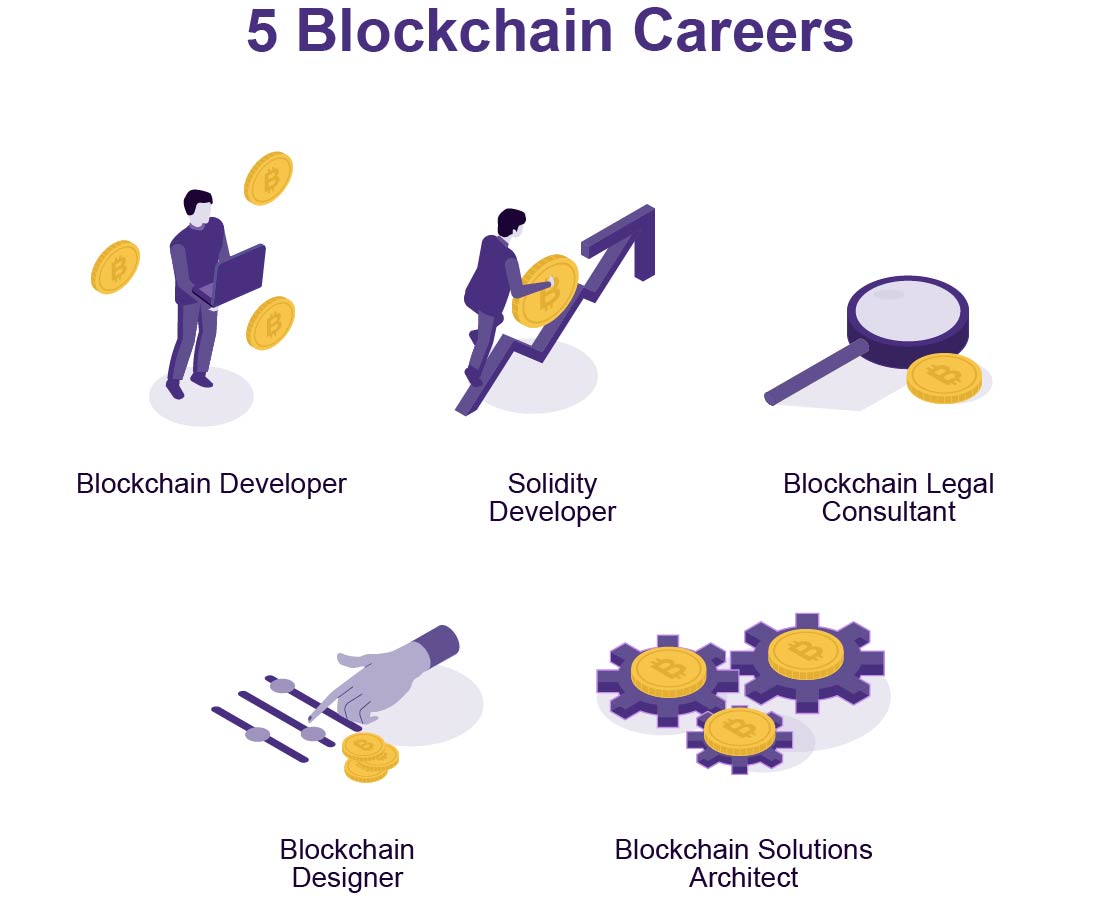Blockchain careers are steadily on the rise, especially as more companies adopt blockchain technologies. You’ve surely heard of crypto, the most popular application of blockchain, but that’s just the tip of the iceberg — blockchain skills are very versatile. As individuals and organizations begin to invest in cryptocurrency and more people trade non-fungible tokens (NFTs), the type of crypto most often used to sell digital art, new applications for blockchain technology multiply.
Every company that wants to use the blockchain needs to hire people who can actually integrate blockchain into their business. Because blockchain is so secure that it’s considered impossible to hack, it has become an invaluable tool in the world of finance. This means that the demand for blockchain engineers and developers will continue to grow, as blockchain becomes a common facet of global commerce.
Blockchain employees come from all sorts of backgrounds. This is a fast-moving and fast-changing industry, which means that companies integrating blockchain into their business don’t just need techies; they also need lawyers, PR and communications professionals, and accountants who can understand and work with blockchain. And, fintech boot camps are a popular choice for professionals both entering and building careers in this exciting field.
 Live Chat
Live Chat


